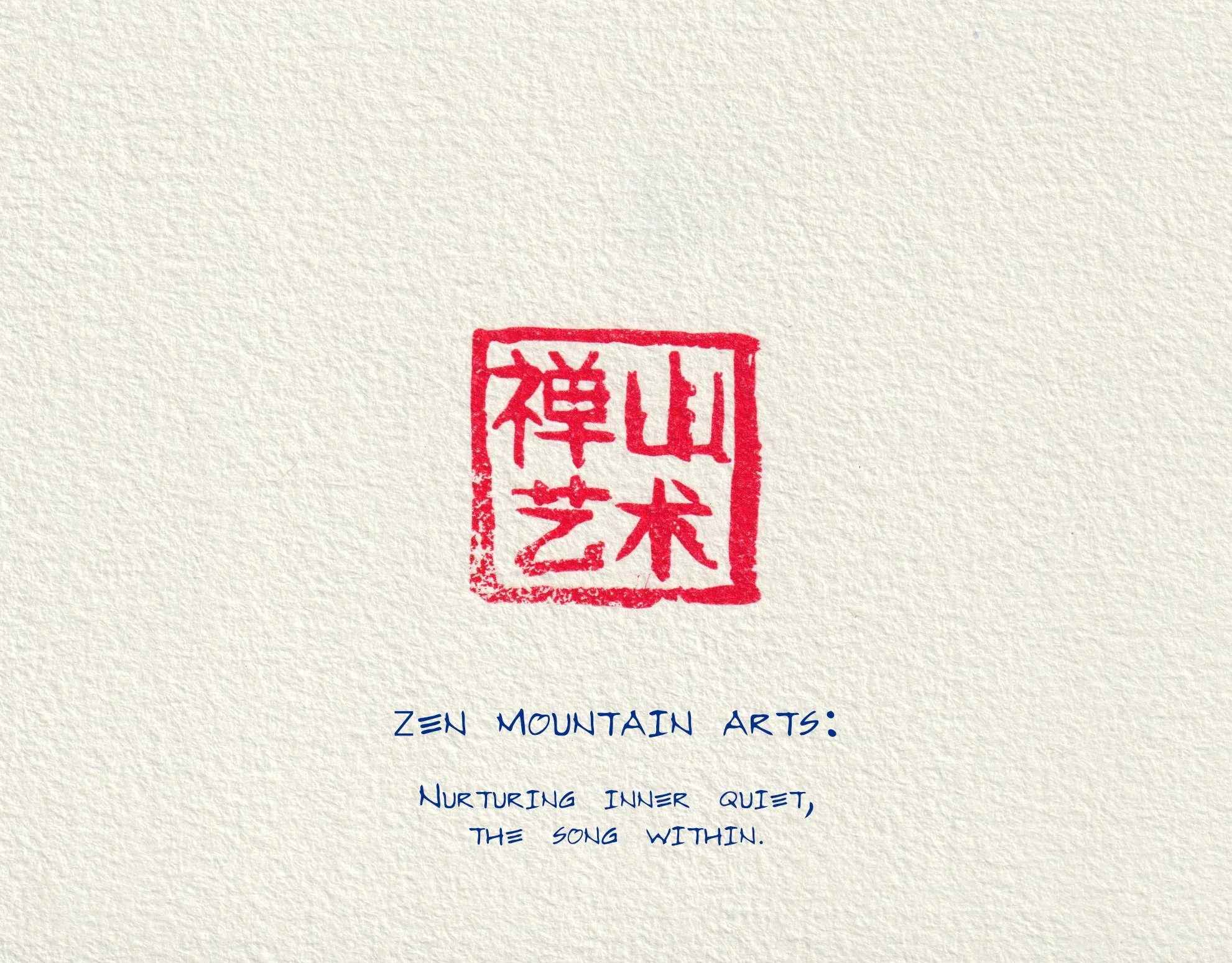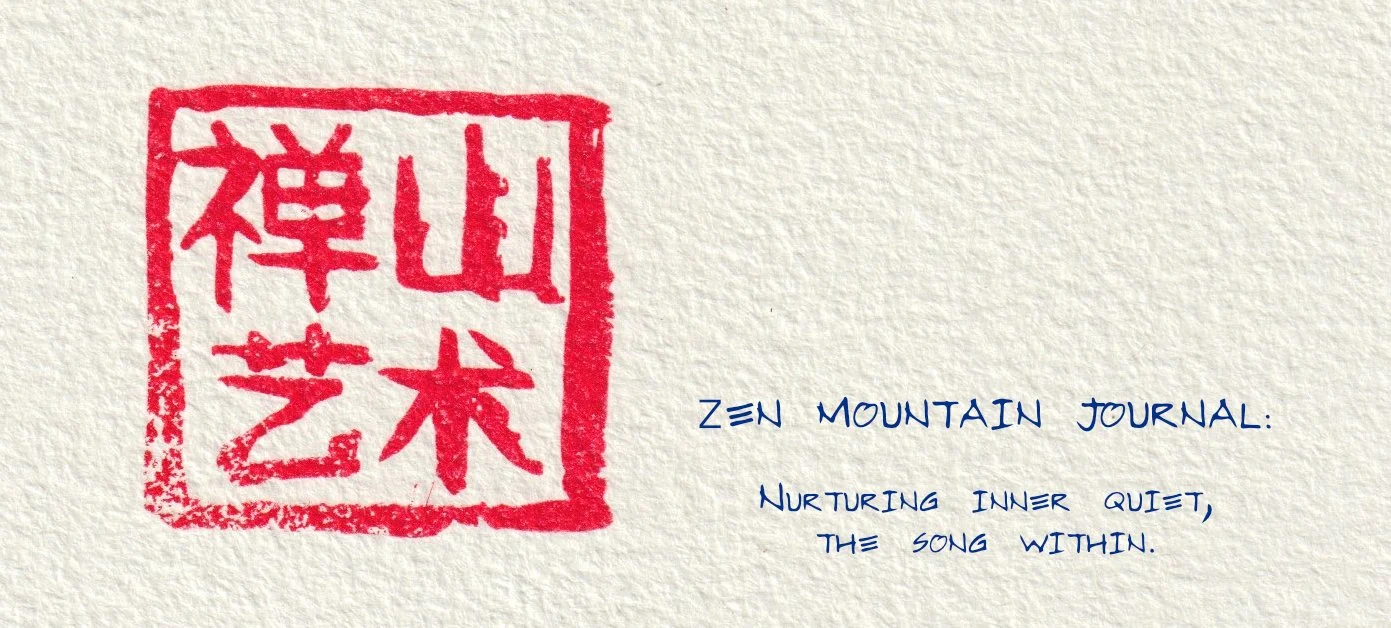Zen Mountain Journal:
Nurturing inner quiet, the song within
(Scroll down to receive.)
Beginning centuries before Christ, early Chinese Taoist mountain hermits and later Zen monks developed a spiritual tradition rooted in solitude, nature, and meditation. They sacrificed many commonplace desires and ambitions to find an inner harmony. Out of that emerged beautiful and mysterious poems—spare, ambiguous, luminous—that describe a state of inner peace that is difficult to explain but can be felt. The best known of these poems is the Tao te Ching, but there are thousands of others, many equally beautiful and mysterious.
I resonate with those poems from my own time alone in wilderness. Reflecting on that sense of peace and harmony I have found in wild nature, I interpret the mysterious beauty and meaning of these ancient poems by going down deep, and then offering what emerges in art and words.
Together we navigate a chaotic world. Despite the darkness, we still are surrounded by an incredible beauty.
Here are a couple of my favorite Taoist mountain poems.
You ask
why I perch
on a jade green mountain
I laugh
but say nothing
my heart
free
like a peach blossom
in the flowing stream
going by
in the depths
in another world
not among men.
- Li Po (Kenneth Rexroth translation,
One Hundred Poems From The Chinese)
In my work I take poems like that one, meditate on them, then offer my interpretation. In this case:
I roam these mountains
Alive, alone, in love with life.
Strange to some, yes
I don't try to explain
I can't explain
The feelings I have here
In this land of no men
Of mountain ranges and rivers.
My mind empty, my heart free.
- Li Po, Heron Dance translation.
. . .
The Fisherman’s Song
Studying Zen, focused
sitting meditation, reaching
for enlightenment
clouds the clear mind.
Meanwhile a lone fisherman
hums a simple song to a darkening river.
Rain softens the dusk,
moonlight slips through clouds
—nothing to explain,
the river sings itself into night.
- Ikkyū (Japanese Zen monk, 1394-1481),
Heron Dance interpretation.
The fisherman, singing to the dusk and rain, represents the purity of mind that comes when one stops striving—including striving for enlightenment. The best way to know is simply to be, living in a way that your life sings itself.
Ikkyū provided the quote that I’ve taken on as the mantra for my work, both art and writing, that I call Zen Mountain Journal.
I never get lost because I don't know where I'm going.
- Zen master Ikkyū, 15th century Buddhist monk




